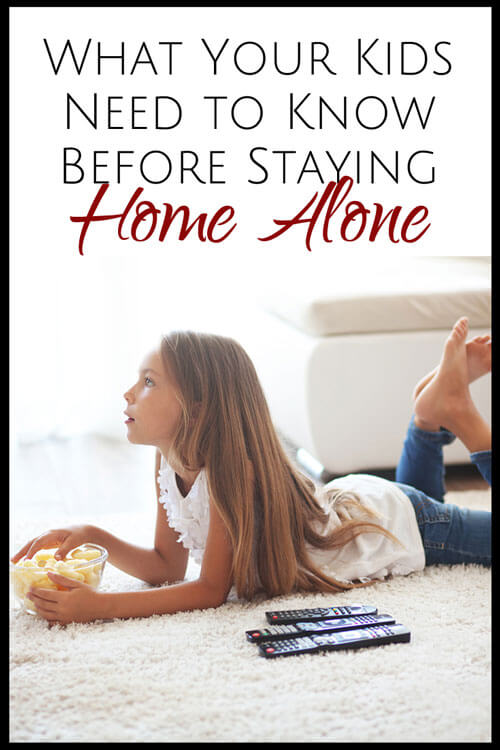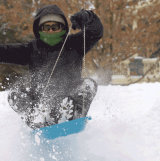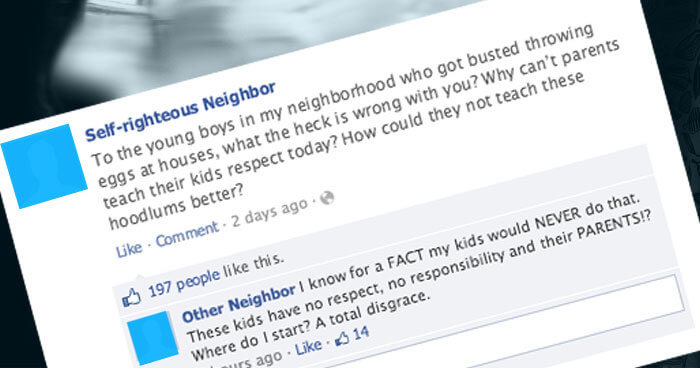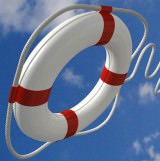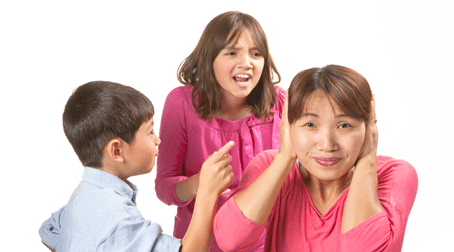What Your Kids Need to Know Before Staying Home Alone
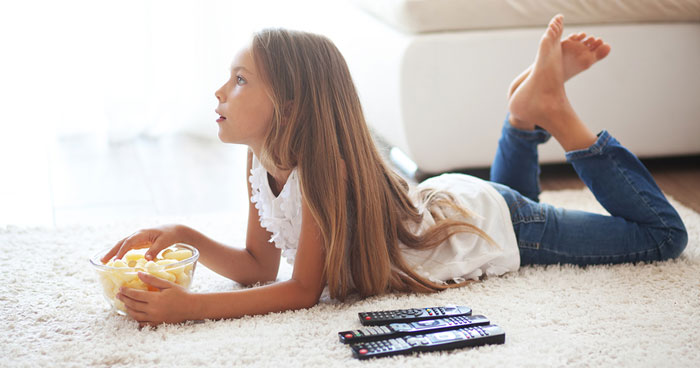
When can my kids stay home alone? Inevitably, whenever we get a group of good friends together, somebody is asking this question. Seriously, who can blame us? After years of hiring babysitters and arranging daycare, we tend to wonder when, oh when, can we go solo to the grocery store without begging for help or emptying our wallets?
Well, being the Sensible Moms that we are, we first turned to the law to figure out the “when.” Easy black and white answer, right? Noooo. Only a couple of states have laws setting the age at which children can be left home alone. For most other states, the local department of human services or the child welfare agency can provide general guidelines for your region.
Guidelines mean you ultimately have to make your own decision. Even though we live in Maryland, one of the few states that have a law setting the age, it didn’t do us much good because it’s eight years old. Eight? Really? That seems way too young to us.
So what it comes down to is evaluating EACH child for his or her readiness, the same thing you have to do with every single aspect of parenting. Why aren’t there ever any easy answers? At least there are simple questions to start you on the right path.
1. How responsible is your child?
- Can your child be counted on to complete homework and chores without being reminded?
- Is your child conscientious in following instructions and rules?
- Does your child usually make good decisions or is he or she prone to taking risks?
2. How does your child react to unexpected situations?
- Does your child panic or keep a level head?
- Does your child give up quickly and turn to you for solutions?
3. Does your child have first aid training?
- Has your child taken a babysitter course or some other Red Cross first aid training or been a part of a scouting first aid program?
- Can your child recite what to do in certain emergency scenarios without checking their notes?
- Does your child know where to find the reference materials from his or her first aid course?
These were the litmus test for us, but for further things to consider, we checked out Leaving Your Child Home Alone from our local children’s hospital.
It is ultimately your decision, but what about when you decide that your precious offspring is ready to stay home alone? You can’t just say, “See ya on the flip side!”
To that end, here’s what we decided — based on research, our guts, and good ol’ trial and error — our kids needed to know. We do like to say that we make the mistakes so that you don’t have to.
1. First Aid
This one is huge. The only way to ward off panic is to arm them with the knowledge of what to do in an emergency. Ellen had both girls take the Red Cross Babysitting course before she even thought about leaving them home alone. Erin’s daughter took the babysitting course, too, but her boys are all in scouting, and they all had their first aid merit badge before they stayed home alone.
When and how to call 911 goes hand in hand with this knowledge. Emphasize that in the case of a real emergency–such as fire or injury–to call 911 even before they call you. Make sure you give examples of when NOT to call and NEVER call 911 as a joke.
2. Who to call for help
As we mentioned, not all emergencies require 911 – like when the toilet overflows. For times such as these, there should be a list of relatives and trusted neighbors they can contact if they can’t reach you. This list should be prominently and permanently placed or programmed into their phones.
3. Your fire safety plan
You should have a fire safety plan, and they should have it memorized. Make sure they know if a smoke detector or a carbon monoxide monitor starts to alarm, their priority is to get out of the house, and only then go to a designated spot to make the emergency call. Physically go over escape routes and locations of escape ladders with them. Make sure they know to stay low and to “stop, drop, and roll.” They need to know your safe meet-up spot.
Furthermore, if you live in an area with frequent natural dangers like tornadoes, make sure they know what to do if the siren sounds.
4. How to use your alarm system
Here, you can learn from Ellen’s mistake. She drilled her daughter on how to turn it off when she got home from school. She neglected to tell her what to do if she failed to disarm it. Let’s just say the sheriff may have shown up.
5. How to shut off utilities
Let’s get back to that overflowing toilet. Their phone call to you should be to confirm they did everything correctly. They should know how to shut the water off to each toilet and sink, and where the main water shut-off is in your house. If you have natural gas, they should know where to shut that off, too.
6. Where the fuse box is located
They should know how to tell if a breaker is tripped and how to reset it. They should be aware that things like overloading a circuit with appliances can cause the breaker to trip, and these things should be unplugged before resetting the breaker.
7. What to do if the lights go out
Whether it be from a tripped breaker or an overall power outage, they need to know where the flashlights and batteries are kept. If a storm pops up, they should be instructed to think ahead and grab the flashlights before the power goes out. Under no circumstances should they use candles.
8. What appliances are they allowed to use
This encompasses how your kids are allowed to feed themselves, too. If they don’t use the stove and oven regularly when you’re home, it’s not a good idea to have them use it when you’re away.
Using the microwave is a safer bet, but make sure they know not to put metal in there and be very specific: no aluminum foil. It’s a good idea to go over all of the appliances in the kitchen: a toaster used improperly can cause a fire, and a blender with a poorly secured top can tie dye your ceiling. You need to be clear about your policy on kitchen knives, too.
If your kids are on the younger side, you probably don’t want them to use things that produce heat such as space heaters, curling irons/ flat irons, and steamers. We would say household irons too, but who the heck uses them anymore? Oh, and be clear that no power tools are to be used. Ellen once had a babysitter drill a hole on her kitchen table because she was making shell necklaces with her girls. Yeah.
9. Who not to call
For us, they are not allowed to invite over friends or call to have any food delivered. It’s not a good idea to ask a stranger to your door.
10. What to do if the doorbell rings
Making a rule never to open the door is almost a no-brainer, but should your child answer through the door? This is a tricky one. Ellen was never a fan of having her kids calling through the door, “My parents are busy” because it seemed equivalent to saying, “I’m home alone.” Therefore, she has always told them not to respond to the door. However, there is some fear about thieves knocking on doors to target houses to rob by seeing who is not home. If you have a barking dog, you have a pretty good live-in deterrent. If you don’t, did you know they make electronic barking dog alarms?
You also need to take the “don’t open the door to strangers” to a very specific place. Tell your kids never to respond to “Your parents are hurt, I need you to come with me now.” This is by far, a more common tactic than “Want some candy?”. Reassure them that a trusted relative or friend would collect them if something were wrong. Even if a police officer comes to the door telling them to open it, instruct them to tell the officer that they will call the police department for confirmation before opening the door.
11. What to do if the phone rings
The easiest thing by far is to let it go to voicemail, but if you do have your child answer it to make sure they never say they are home alone. They should also never identify themselves.
12. Are they allowed outside
This depends on your neighborhood and the lay of the land. Streams, creeks, and pools are completely off limits. They should know how to handle the dog needing to go out and what to do if a pet runs off.
13. Technology rules
You need to be very clear about how and when they can use the TV, computer, and i-Every-Little-Thing. There are programs and apps to control usage if you need help.
Staying home alone is just one more step in the dance of growing up. With preparation and practice, you can all do this!
Head to the Family Room
PIN IT FOR LATER:
This post was syndicated with permission to BonBon Break Media, LLC.
